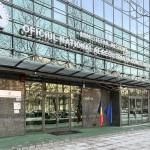Organized crime and corruption flourished in Bosnia and Herzegovina not only because of the destabilizing effect of the war, but also due to the international community's misguided reform efforts, according to a new study released by an independent analyst based in Sarajevo.
'Organized Crime in Bosnia and Herzegovina - A silent war fought by an ambush of toothless tigers or a war not yet fought?' details BiH crime and corruption and explories the role of politics in shaping their evolution. Sheelagh Brady is a former analyst for the European Union Police Mission in BiH.
The report states that organized crime and corruption existed in healthy doses far before the war broke out, but that wartime chaos exacerbated the problems. "Wartime conditions did provide opportunities for [organized crime] to flourish, with the post-war environment doing little to cease criminal activities," Brady wrote.
According to the report, one unhelpful factor in the post-war environment was the intervention of the international community, which often did more harm than good since its efforts provided just enough stability to make crime profitable. "The [international community] have a tendency to contribute large amounts of money without checking how it is spent, introducing auditing measures and demanding associated returns," Brady wrote. "This can and has led to misuse and corruptive spending practices by local actors, with little or no ramifications."
Brady interviewed state ministers, police commissioners, academics, members of the international community, journalists and organized crime members. The organized crime they listed as major concerns included privatizations and procurement and tender fraud. Many police agencies do not have the capacity to investigate or monitor these crimes, the report found.
Brady said she tackled this project to highlight what she called the conflicting and hypocritical nature of many existing views regarding crime and corruption in BiH. Her recommendations for addressing these problems involve a variety of multi-agency, multi-disciplinary approaches to reform and enhanced transparency. Among her suggestions are police restructuring, stringent audits, improved data sharing and analysis, and whistleblower protection charters.
Read the full report here.


